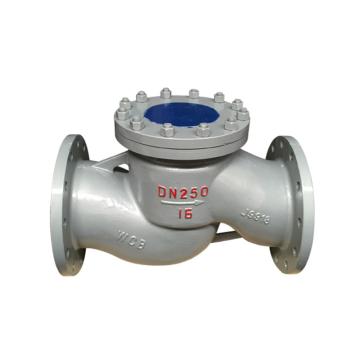forged steel swing check valve
Forged Steel Swing Check Valve A Comprehensive Overview
In the realm of industrial piping systems, check valves serve an essential purpose by ensuring that fluid does not flow backward through a pipeline. Among various types of check valves, the forged steel swing check valve stands out for its durability, reliability, and superior performance in managing fluid dynamics. This article delves into the design, functionality, applications, and benefits of forged steel swing check valves.
What is a Forged Steel Swing Check Valve?
A forged steel swing check valve is a type of valve that allows fluid to flow in only one direction. It utilizes a hinged disc that swings open when fluid flows in the intended direction and closes when the flow stops or reverses. The term “forged steel” refers to the method of manufacturing these valves, where steel is heated and shaped under pressure to enhance its strength and integrity. This material choice is crucial as it provides enhanced resistance to high pressures and extreme temperatures, making it suitable for various applications.
Design and Features
The design of a forged steel swing check valve typically includes the following components
1. Body The valve body is made from forged steel, which ensures high strength and durability. 2. Disc The disc, or closure element, swings open and closed to control fluid flow. It can be made from the same forged steel or other suitable materials, depending on the application. 3. Hinge Pin This pin holds the disc in place and allows it to pivot. 4. Seat The area where the disc comes to rest when the valve is closed, ensuring a tight seal.
One of the defining features of this valve type is its low-pressure drop, which is achieved through its streamlined flow path. Additionally, forged steel swing check valves are often designed with a robust sealing mechanism to prevent leaks, ensuring minimal maintenance and longer service life.
forged steel swing check valve

Applications
Forged steel swing check valves are widely used across various industries, including
- Oil and Gas They are critical in pipelines where fluids must flow unidirectionally, particularly in oil transport and refining processes. - Water Treatment These valves are used in water supply systems to prevent backflow, ensuring that clean water does not become contaminated. - Chemical Processing Their ability to withstand corrosive substances makes them suitable for handling chemicals in various formulations. - Power Generation In power plants, swing check valves are used in cooling water systems and steam lines due to their robustness and reliability.
Benefits of Forged Steel Swing Check Valves
1. Durability The forged construction of these valves provides superior strength compared to cast valves, allowing them to withstand harsher operating conditions. 2. Reduced Maintenance The robust design leads to fewer malfunctions and maintenance requirements, translating into lower operational costs over time. 3. Versatility Suitable for a wide array of applications and fluids, including corrosive and high-temperature substances. 4. Efficient Flow Control The low-pressure drop feature ensures that there is minimal resistance to fluid flow, enhancing system efficiency.
Conclusion
In conclusion, the forged steel swing check valve is a crucial component in many industrial applications, offering robust reliability, efficient fluid management, and reduced maintenance needs. Its design and functionality make it a preferred choice among engineers and operators dealing with complex piping systems in challenging environments. By understanding the significant benefits and applications of these valves, companies can enhance the efficiency and safety of their fluid transport systems. As industries continue to evolve and demand higher performance from their components, the importance of forged steel swing check valves will remain a key consideration in designing and maintaining effective piping systems.
-
The Key to Fluid Control: Exploring the Advantages of Ball Valves in Industrial SystemsNewsJul.09,2025
-
The Versatile World of 1, 2, and 3 Piece Ball ValvesNewsJul.09,2025
-
Stainless Steel Ball Valves: The Ideal Choice for Efficient Flow ControlNewsJul.09,2025
-
Optimizing Fluid Control with Ball Float ValvesNewsJul.09,2025
-
Manual Gate Valves: Essential for Control and EfficiencyNewsJul.09,2025
-
Everything You Need to Know About Butterfly ValvesNewsJul.09,2025
-
The Versatility of Wafer Type Butterfly ValvesNewsJul.08,2025




